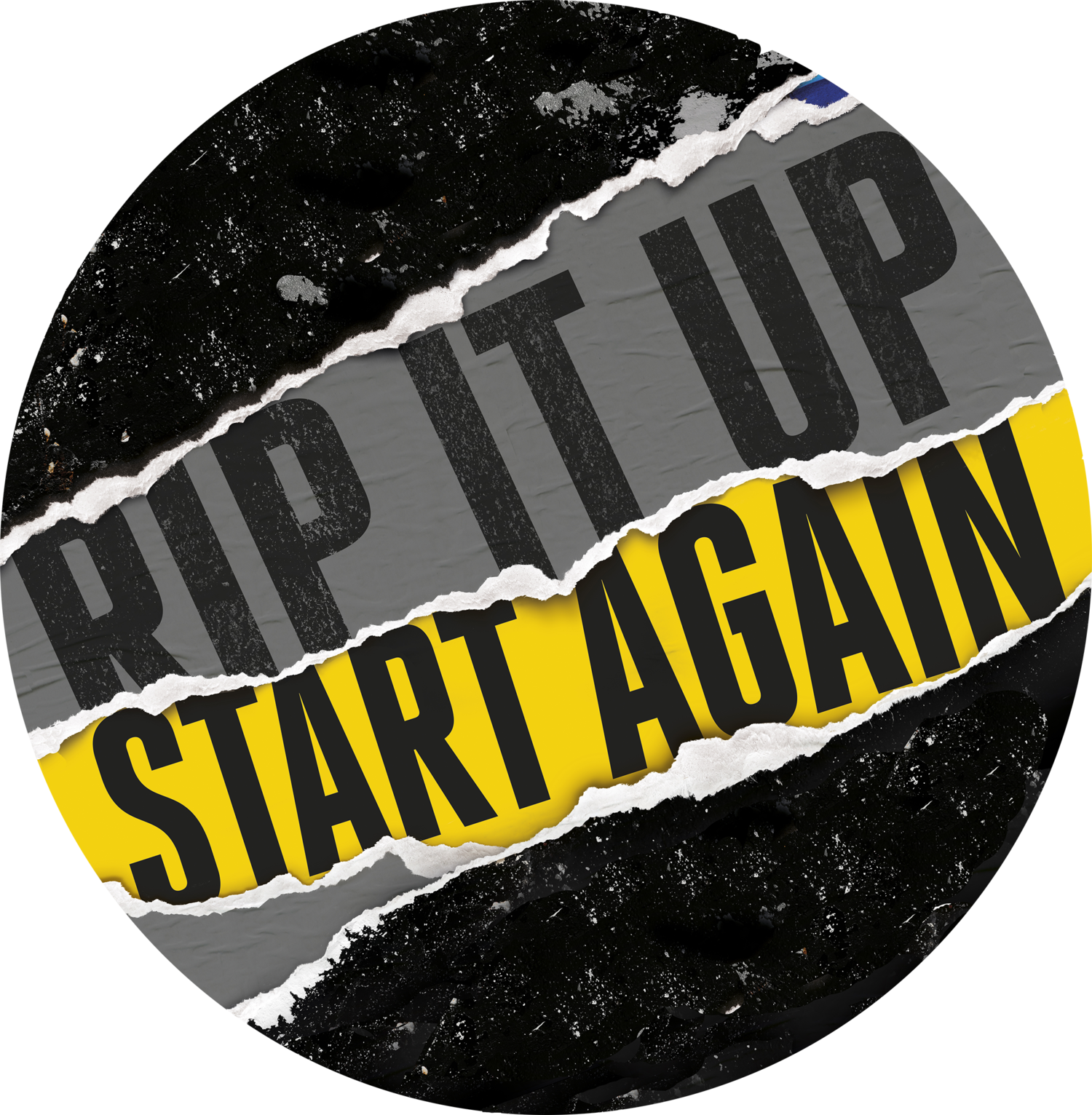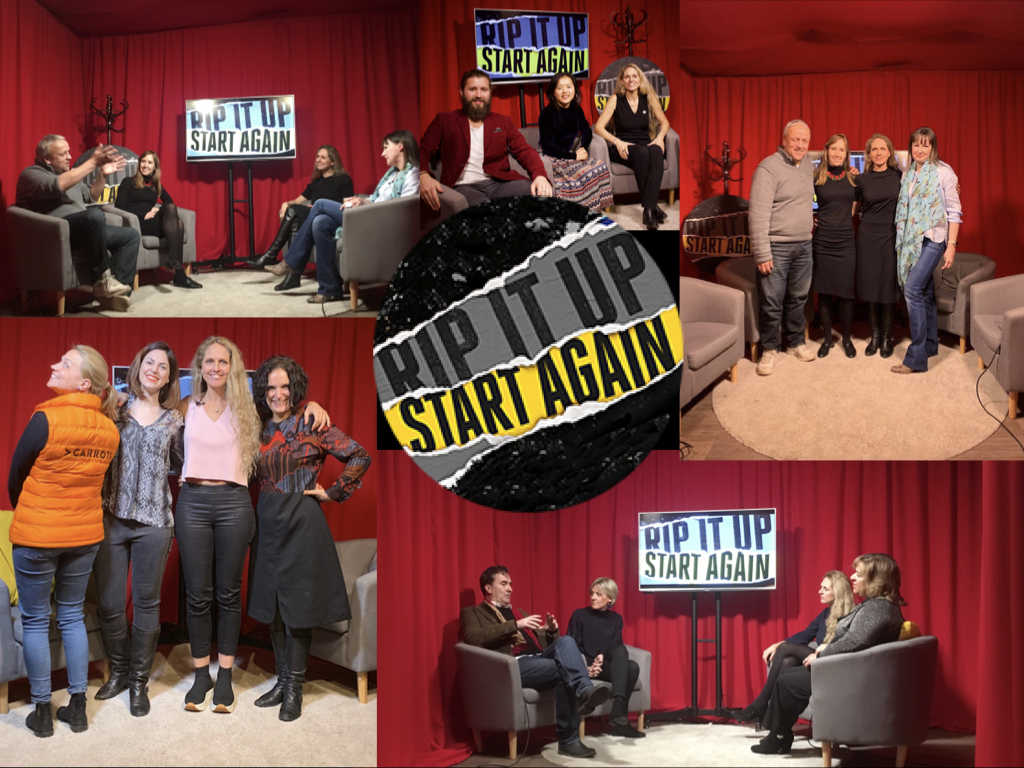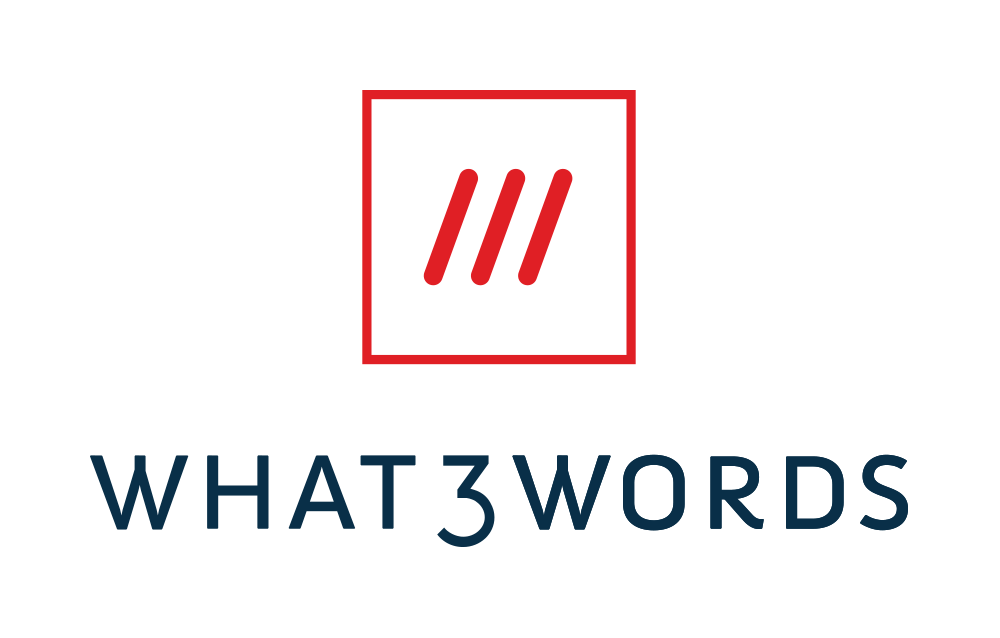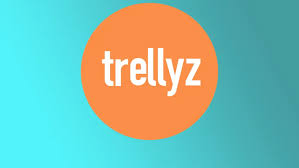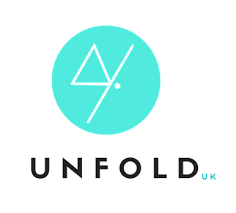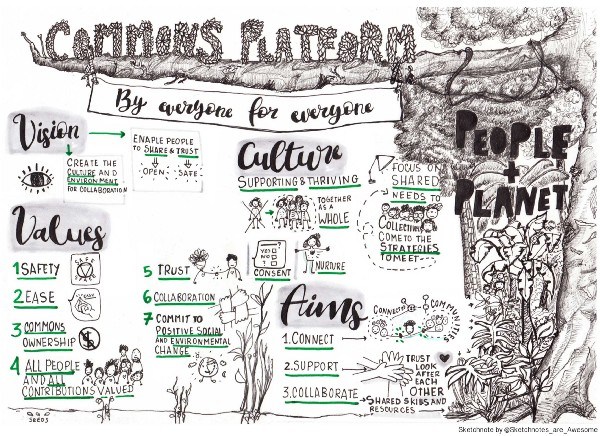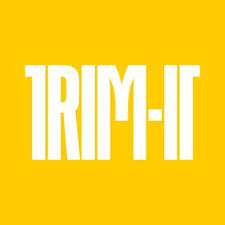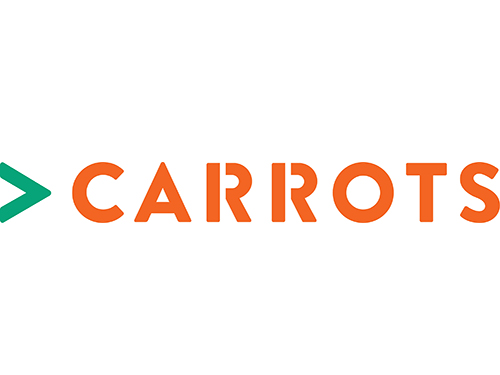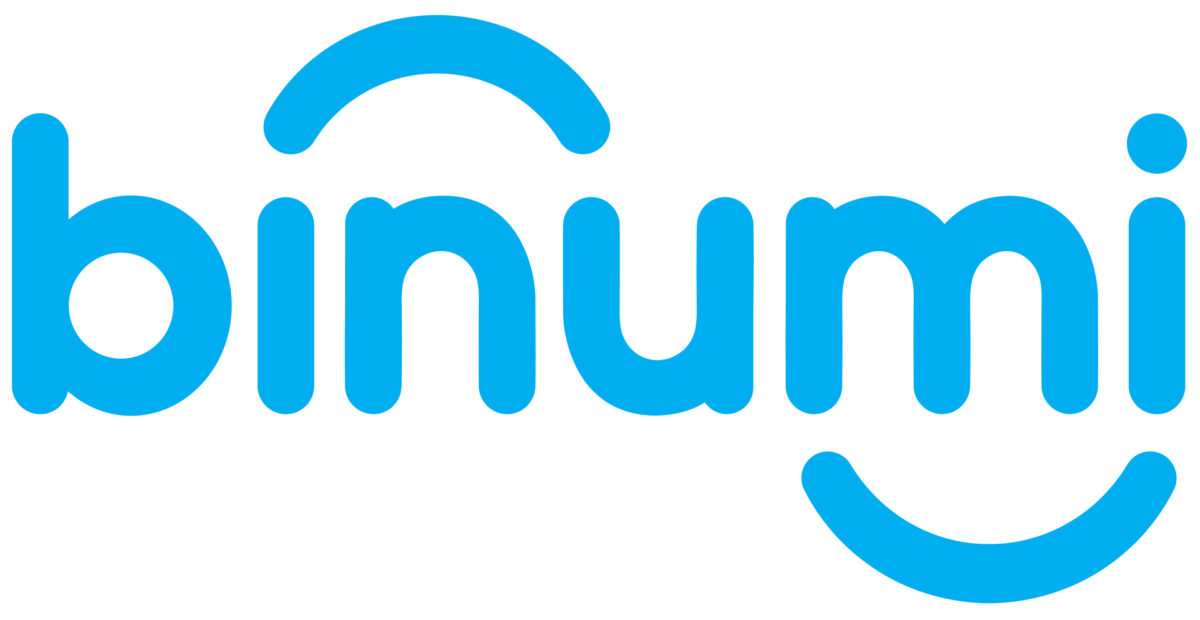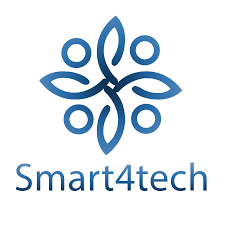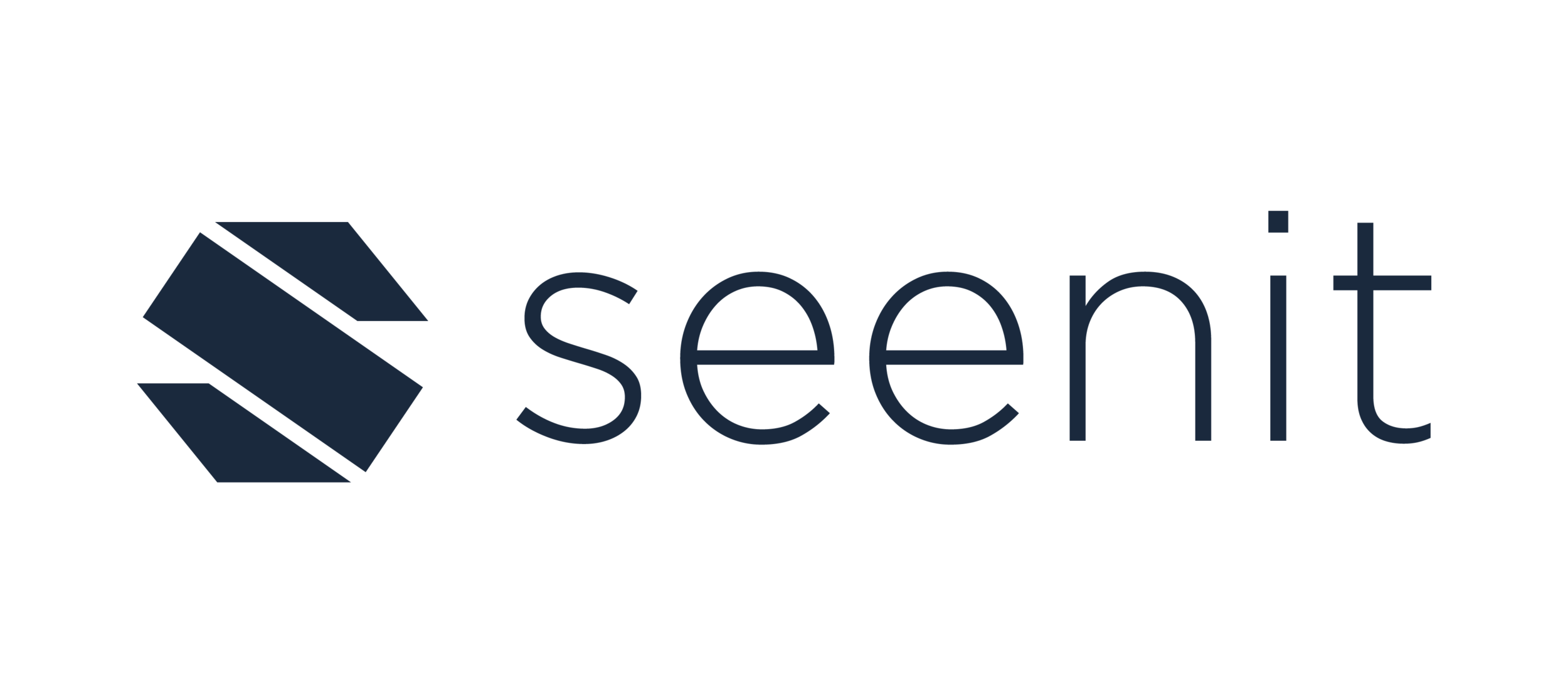Round 11: Tumelo | Consentricare | Rabble
/Rip It Up, Start Again have partnered with Disruptive.Live to bring you disruptor stories from some of the most exciting startups. Hosted by Lulu Laidlaw-Smith, this televised event includes a series of five-minute overview and backstory from entrepreneurs followed by an interactive Q&A. At the end of the episode, viewers get to vote for which startup they would invest in. Check out The Poll page to vote!
SPEAKER #1 Georgia Stewart | Tumelo
Georgia always loved animals growing up. Watching David Attenborough on her television day after day, she knew she wanted to be a conservationist just like her hero. Following that dream, she found herself at Cambridge University studying natural sciences. Given the political climate of the period, her studies eventually led her into the realm of the sustainable finance movement, giving her insights into how individuals and their money can ultimately have an impact on big picture issues, like climate change. ‘Divestment’ became the word on everyone’s mind; the idea of disinvesting money from the fossil fuel industry. Like hundreds of organisations around the world, Cambridge was feeling the pressure to jump on board, changing where their money was going. Working with the university, Georgia and her fellow student activists encouraged them to rethink how their £6 billion endowment was being used. She insisted that transparency was key, that their investments should be ethical, and that they should be using their shareholder power to enact positive change in large corporations — the kind of change that seemingly only they had the power to make. A surge in grassroots campaigns swept across universities, churches, and communities around the world urging divestment. Between 2012 and 2018, £6.4 trillion was divested world wide. Through Tumelo, Georgia has created a platform that allows the everyday person to put their money where their morals are — giving them the opportunity to invest in the companies they believe in, who support their visions for the future of the environment and society. Find out more at https://www.tumelo.com/.
SPEAKER #2 Bill Palmer | Consentricare
Bill’s background working in the corporate world meant that he was no stranger to disruption, shaking up the market to fit the needs of people when things became just a bit too stagnant. And for Bill, there was a big market that clearly needed a big change: the elderly care industry. About three years ago, Bill and his business partner were both in similar situations with family members that were nearing the point in their lives where a bit of extra care was needed. For Bill, it was his in-laws who needed a new system in their lives for care and living. The problem was, neither Bill nor his business partner knew where to even begin when it came to helping their loved ones. They realised the elderly care system in the UK was extremely complicated, which completely baffled them. The elderly are some of the most vulnerable people in society, and it seemed odd to them that it would be so difficult finding ways to help them. Feeling a bit lost and confused, the two decided to take matters into their own hands, not only for the sake of the people closest to them, but for all the people around the UK who needed care, and were seeking care for others. Bill then created CareHound, an app that allows people to navigate the elderly care world, giving relevant information and resources needed to find the best possible care for their family members that need it. Find out more about CareHound and Consentricare at http://www.consentri.care/.
SPEAKER #3 Charlotte Roach | Rabble
Like most athletes, Charlotte had a unique relationship with exercise and fitness that most people might not. For her, working out and training came with a goal, whether it was small-scale, like winning the upcoming match on the weekend, or as big as prepping for the Olympic games. And at one point, that’s exactly what Charlotte was doing: training to be an Olympic athlete. However, after an accident that threatened her life, she was forced to give up her Olympic dream, and began a road of recovery back to a place where she could train again. Except this time, without that big goal as her focus, she realised that for most people, exercise was boring. It was time consuming, tedious, isolating, uninteresting, and lonely. Most people don’t like going to the gym and working out alone, just for the sake of staying fit. She also realised that lack of movement and exercise was one of the largest factors in premature deaths around the world. So how to get people moving in ways that interested them? Games, of course! After moving back to London and working with a charity, Charlotte decided to host a day of activity, giving people a chance to be active as a group. Over 20 people ended up attending the event, which found her hosting games like dodgeball, British bulldog, and capture the flag. This was the key to getting adults back in the fitness game — a bit of fun. She quit her job and founded Rabble, a network of events across the country, hosted by Rabble Coaches who lead a variety of games and activities that get strangers coming together to have fun and be active. Find out more at https://joinrabble.com/.
Q&A HIGHLIGHTS
On problems solved...
Georgia Stewart: “I guess wealth management in general lacks transparency, lacks connectivity, it lacks any ability to participate, and that means that normal, everyday people, anyone who is saving for anything, is left in the dark, they’re disengaged, and they don’t have any voice. That really sucks because your finances is one of your best levers that you have to influence change in society. Where you work, what you consume, and where you put your money. But at the moment, that third thing is totally forgotten about and wealth management is kind of this ivory tower of complexity and what we want to do is make it much more transparent and much more participatory so that you can see exactly where your money is going and you have a choice and you can make it values-aligned.”
Bill Palmer: “The idea is we help people to understand and navigate the eldercare ecosystem. If anybody has done it or had experience of it, or if their parents have done it, they’ll understand how difficult it can be just to find where to start. So there’s a real issue around that, and we set out to solve that issue based on our own personal experience, and what we realised was if we could make life easier for ourselves then we would make life easier for thousands and hundreds of thousands of people. There are 700,000 unpaid carers in the UK at the moment. These are people looking after other people, not just elderly people. And we are part of an elderly and aging population so this applies to every single person listening today. We’re all going to get old and we all have parents, grandparents, other relatives, who are already in that position.”
Charlotte Roach: “Five million people die every year as a direct result of inactivity. And that’s just directly due to inactivity, there are obviously lots of other diseases and chronic illnesses that are definitely influenced by your activity level. 80% of UK and US adults don’t meet the national minimum exercise guidelines on a regular basis. Having said that, you know, 78% of people have a desire to be more active, so the desire is there but people aren’t doing anything about it even though the consequences are pretty clear, and why is that? Well, I mean, it’s not that difficult to see that when you look at the options. Why would you go to the gym? It’s mind-numbing, it’s lonely, it’s repetitive, it’s boring, it’s judgmental. Yeah, you get a work out, great. You can burn some energy. But exercise is just movement, and you can burn energy doing anything so why not do something purposeful or enjoyable or positive or you know there’s thousands of other ways of achieving that.”
On trust...
Georgia Stewart: “Yeah, I think trust is really, really important. I think that’s a given when you’re talking about financial services. Wealth is a really taboo topic, in the UK especially, people don’t talk about it over the dinner table, they don’t talk to their parents about it, to their children, their friends, and so everyone is quite isolated and it’s a quite cagey subject. Naturally, trust is a big deal. I think in general people don’t trust the big financial institutions but they don’t necessarily trust the small ones either. Investing especially is a black box right now. You expect to just hand over your money maybe to an IFA, a financial advisor if you can afford one, or just look straight online if you can’t afford that. People, especially women actually, really struggle with that. They want more detail, they want transparency. We put out a survey three weeks ago and transparency came back as the number one thing people wanted above performance so knowing where the money was going was more important than their money growing. Performance came second but that really said something. So yeah, I think trust is a big issue.”
Bill Palmer: “The key point is that you have loved ones. If you’re in a position where you’re organising care for them then it’s vitally important that you are tapping into people that you can trust. The last thing that you want to have is people visiting your home or your grandmother’s home or your parents’ home who can’t trust because you are giving them access, sometimes quite intimate access, to the people that you love. So what we’ve done is we’ve taken a step to say we have a very high bar that we expect organizations and enterprises to meet before we let them onto the app as suppliers. So we have a set of rules around charities and not-for-profits, around professional bodies such as financial advisors and solicitors. Obviously with people like GPs and pharmacies and hospitals, then we take feeds from the NHS direct for that.”
On validation…
Georgia Stewart: “The divestment movement was really the first kind of tick in the box. There was a massive amount of money divested, 6.4 trillion globally, and that was by institutions, so like religious institutions, charities, universities, were divesting, but the momentum or the impetus for change was coming from everyday people. They were employees and students and professors and like members of religious organisations. They were saying hang on, wait a second, you need to put your money where your mouth is. And that was our first moment of ‘oh hang on, there’s a ton of people here starting on the streets that don’t really care about finance but definitely care about sustainable finance and where the flows of money are going.”
Bill Palmer: “As a mobile app, we obviously have a technology product which we have built. Before we ever cut a line of code, before we went anywhere near doing anything like that, we did a couple of things. We started from our own use cases, so myself, and John, my original partner’s use cases of me and my in-laws and their situation, him and his mother, and their situation. The two situations were different, it gave us two base use cases. What we then did was, both of us, I particularly have a background in customer experience, so we did a lot of work on persona and journey mapping to understand who was our target audience, what sort of things did they need, and we spent some months just working through that. We then took those personas and went on the streets and talked to people, and we talked to a significant number of people about their own journeys, and the really interesting thing we found was we could start talking to people about what we were doing and the second they said ‘this resonates with me because of my mother, my father, my grandad, my uncle’, the second we got to that part of the conversation, then we knew that we had another advocate.”
Charlotte Roach: “I had an idea of how I wanted it to work, and I don’t really have any money either, so I just put an event up on meetup.com, saying we’re going to play some games and if anyone wants to come it’s free, and then a week went by and nobody really signed up, and I was thinking ‘Oh phew, I don’t actually have to run this thing’, and I had a two week lead time, so halfway I was like ‘Okay, nobody is coming’. But then the last week [we] had 20 signups and I was like, ‘Oh god, I have to do this and I’ve never played dodgeball before, I don’t have any equipment, any space to run it, I actually don’t know how I’m going to do this’, My friend lent me some space and some equipment, like a community centre which was amazing, and then I googled dodgeball rules and tried to manipulate it so that anyone could show up and you’d definitely get a work out and run it. And people liked it, so I ran another one, another one, got feedback from those guys and it just kind of evolved from there.”
On scaling up…
Georgia Stewart: “Scaling in financial services is notoriously difficult because people don’t talk about money, for starters, and that is a problem which hopefully we’ve addressed. We are just launching at the moment, so it’s shifting from development to into launch phase. We have a closed beta running now, so people can sign up to a waitlist, we have a waitlist to go to. In terms of scaling over the next year, we’ve got two mechanisms. One is to go via NGOs so go and speak to people who already expressed they care about something, whether it’s feminism or environmentalism or innovation, they’re already signed up to a membership body and there are millions and millions of people who volunteer already in the UK and who are signed up to places like Friends of the Earth and Green Peace, etc. The second route is really through campaign-based mechanisms, so if you think about how your voice is going to be heard, [Lulu] asked earlier ‘What if you own a share of Unilever?’ Then what we are going to build is basically a change.org model so people on our platform who have identities can create a positive change campaign targeting an issue they care about at a company, they can invite other people on the platform to back that campaign, and they can elevate it to their social media accounts, so that basically becomes a feedback loop.”
Charlotte Roach: “We just closed a crowd-funding round a few weeks ago, which was great. Now the goal is to continue to support our licensees and can continue to support that presence in the UK. We’ve done most of the licensees that were required so far through Facebook advertising so now the goal for us is to work with more B2B organisations. We’re doing some stuff with gyms, we want to do some stuff with schools, and try to change the perception of exercise really early, and hopefully we’re going to do some trials in the social prescribing area with the NHS.”
On change…
Bill Palmer: “Separating the app from the platform is something which we didn’t set out to do first of all, we set out to build a technical platform which supported the app, the CareHound app that we had produced. The fact that we then realised that that had legs in its own right was quite significant, a quite significant turning point for us, so we now have CareHound as the app but we also have Houndation, which is something separately saleable in its own right. And as I’ve already explained, that then gives us a route to funding which we didn’t previously have and that then creates the virtuous circle that I explained. Is it a pivot? Yes, very much so but it’s a pivot which makes a huge amount of sense because the platform itself is scaleable, secure, performant, etc.”
Charlotte Roach: “I think for us, we would launch sites ourselves and in different areas, and we decided that the best way for us to scale, rather than us owning all the sites ourselves was to license it. Since doing that, it’s been so much quicker to gain scale and a lot less expensive.”
